Faculty of Law Opposes Governments' Plan to Reform Social Welfare System (Večernji List)
ZAGREB, 27 Oct 2021 - The proposal to replace social welfare centers with a central institute prompted a reaction from university professors, who say yes to reform, but a professional one, not one imposed by the minister, Večernji List daily reported on Wednesday.
One of the key reforms announced by the Minister of Labour, Pension System, Family and Social Policy, Josip Aladrović, in the presentation of an action plan for the improvement of social welfare and the announcement of a social welfare bill was the replacement of social welfare centers with a central social welfare institute and with branch offices, the Faculty of Law in Zagreb said.
In a letter signed by the head of Social Work Study Centre, Associate Professor Gordana Berc, the head of the Department of Labour Law and Social Security Law, Professor Željko Potočnjak, and the head of the Department of Administrative Science, Professor Gordana Marčetić, the Faculty of Law stated its opposition to the government's plan.
We consider that the proposal, which is opposed by all professional associations, will not contribute to a more efficient structure and operation of the system, said the professors at the Faculty of Law, adding that the proposal was not put forward by representatives of workers in social welfare or by working groups that worked on the new bill, but that it was being imposed by the minister and the ministry.
They underscored that the system was already highly centralized and that the proposal deprived local and regional authorities of the possibility of impacting the social welfare system, even though they had obligations to finance certain rights.
Further centralization of the system, the Faculty pointed out, is not in accordance with the Constitution, which states that local government units perform tasks at the local level which directly meet the needs of citizens.
Under the new bill on social welfare, the Social Welfare Institute has no obligations towards local government units in terms of submitting reports, nor are local and regional authorities represented in the steering council of the new institute. The change in the structure is clearly modeled on the Croatian Pension Insurance Institute, but social welfare pension insurance systems operate on different models, the Faculty said.
The justification for the reform is the inefficiency of the current system and its uneven performance. However, it is not clearly stated what kind of uneven performance occurred or what caused it, Večernji List reported.
For more, check out our politics section.
European Conference for Social Work Research: Croatian And Swiss Scientists Participate in Social Work Symposium
May 19, 2021 - Held in Bucharest, Romania, the European Conference For Social Work Research saw Croatian and Swiss scientists jointly participate in scientific issues of social work in Croatia and Switzerland.
Earlier in May, the University of Bucharest, located after the biggest city and capital of Romania, held an online edition of the European Conference For Social Work Research (ECSWR).
Swiss and Croatian teams jointly participated in the symposium „Opportunities and Obstacles in the Evaluation of Homelessness from a Lifeworld-oriented International Social Work Perspective“, which saw prof. Matthias Drilling and dr. Zsolt Temesvary represent their University of Applied Sciences and Arts Northwestern Switzerland (FHNW), and dr. Lynette Šikić Mićanović represent the Croatian Ivo Pilar Social Research Institute. The conference was organized by The European Social Work Research Association (ESWRA)
As stated by ESWRA's official website, the association was founded in 2014 with a goal to create social work research development, collaboration, and exchange across Europe. As the ECSWR conference saw overwhelming levels of engagement, the ESWRA association today counts 600 members from across more than 33 countries.
„ESWRA’s vision is to take forward the development, practice, and utilization of social work research to enhance knowledge about individual and social problems, and to promote just and equitable societies“, says ESWRA.
While Dr. Lynette Šikić Mićanović presented Croatia at the conference, she is also a member of the team that includes Suzana Sakić and Paula Greiner. Along with the aforementioned Swiss team, the Ivo Pilar Social Research Institute informed that the Croatian team participated in a joint research project called "Exploring Homelessness and Pathways to Social Inclusion: A Comparative Study of Contexts and Challenges in Swiss and Croatian Cities (No. IZHRZO_180631/1).
„This work is financed within the Croatian-Swiss Research Program of the Croatian Science Foundation and the Swiss National Science Foundation with funds obtained from the Swiss-Croatian Cooperation Program”, says the Ivo Pilar Social Research Institute on its website.
Looking at the „Homelessness and Social Exclusion in Croatia“ science paper whose author is Lynette Šikić-Mićanović from 2010, its abstract suggests that „homelessness is a relatively new phenomenon in most Croatian cities and has been largely ignored by policymakers and social scientists“. So, Šikić-Mičanović's paper aimed to research and contribute new data on a previously unresearched social group to answer the urgent need for a fuller understanding of the perceptions and experiences of homeless people in Croatia.
„Based on the research findings of this study, a number of recommendations can be made for the provision of comprehensive information, services, and assistance to lessen social exclusion among homeless persons as well as to facilitate their routes out of homelessness“, says the paper. Based on scientific research, there are overall five recommendations, as follows:
1.) Special attention – apart from accommodation – needs to be paid to the quality (or lack) of services that homeless people urgently require, such as medical, counseling, legal, supportive holistic assistance from professional qualified and sensitised staff, and so on.
2.) Continual and systematic evaluation is required at shelters and among the wider homeless population by teams of qualified persons, researchers, and/or non-governmental organisations for the assessment and articulation of their needs, abilities, aspirations, and problems.
3.) Programmes need to be developed at the local level to meet different contextual needs. These could include more accessible (less public) soup kitchens, perhaps with special menus (e.g., for diabetics); the introduction of public bathhouses, day centres, doctor’s/dentist’s surgery, or subsidised accommodation for homeless persons, depending on the context.
4.) Volunteers from all age groups should be found and trained with a view to increasing public awareness of homelessness and social exclusion and dispelling the myths and stereotypes about homeless people.
5.) Former shelter users should be monitored and assisted with accommodation and other support services (e.g., utility bills, furniture, therapy, financial aid, help with education) to prevent them from becoming homeless again.
These recommendations are directly quoted from the scientific paper for the sake of accuracy, and hopefully, for a better tomorrow, the policies of the state will follow the scientific findings and discoveries in social sciences.
Learn more about Croatia: location, facts, economy, and more on our TC page.
For more about science in Croatia, follow TCN's dedicated page.
Government Establishes National Council for Development of Social Policies
ZAGREB, 29 April, 2021- At its meeting on Thursday, the government adopted a decision to establish the National Council for the Development of Social Policies and launched a procedure for the preparation of a Strategy for the Demographic Revitalisation of Croatia by 2031.
"Social security and welfare for our socially vulnerable citizens is one of the primary objectives of this government's activities. That is an area for which we foresee significant investments in the coming period, partly from the budget and partly from EU funds amounting to more than HRK 5.5 billion," Minister Josip Aladrović said.
At the same time, in an effort to improve the quality and efficiency of social policies, the National Council for the Development of Social Policies will be established as an advisory and expert government body, he added.
"It will contribute to the development of the government's social policies through proposals and expert opinions from which our citizens will have the most benefit," Aladrović said.
Council members will be appointed by the government at the ministry's recommendation. The Council will comprise representatives of state administration, professional chambers, the academic community, civil society organisations and other organisations that can contribute with their knowledge and experience, he added.
The Council will in particular be responsible for monitoring and improving the social security system. It will monitor the implementation of international agreements and existing regulations relating to social security, as well as the needs and standards of social services and other issues. It will also make recommendations for measures and development and monitor activities in social planning and development of the social welfare system.
The Council will convene as necessary, at least once a month. Council members will not be paid for their work, and the Council's work will be transparent and public.
Funds for the Council's activities will be ensured from the ministry's allocation in the state budget.
Demographic revitalisation a key national issue
The government also adopted a decision to launch a procedure for the preparation of a Strategy for Demographic Revitalisation until 2031. The government commissioned the Central State Office for Demography and Youth to prepare a strategy and to appoint a task force.
"The issue of demographic revitalisation is a key national issue for the survival and development of Croatia," state-secretary in the Central Office for Demography Željka Josić said.
Demographic revitalisation is one of the priority areas of the National Development Strategy until 2030 which sets out guidelines for demographic revitalisation and priorities that will contribute to resolving negative demographic trends.
The strategy deals with areas such as material and non-material support, housing, tax reliefs, public health, education, life-long learning, labour market and mobility, said Josić.
This decision aligns the document with the Strategic Planning and Development Management Act as the key strategic document for national strategic development.
For more about politics in Croatia, follow TCN's dedicated page.
Action Plan For Social Welfare System Reform To Be Presented Soon
ZAGREB, 21 April, 2021 - Labour and Social Policy Minister Josip Aladrović said on Wednesday that intensive talks had been underway with all stakeholders in the social welfare system, noting that the system was ready for a reform.
He said that an action plan for a broad reform was being prepared and that it would be presented in the next few days.
However, certain challenges have accumulated in the system for a long period of time so its reform will also take time and require quality engagement of all stakeholders, he said.
The action plan is comprehensive and detailed, the minister said, adding that no group of beneficiaries or employees would be left out.
"We want a solid and implementable document," he said, adding that the reform would focus on the beneficiaries of the social welfare system as well as deal with the problem of a shortage of social workers and excessive workload.
An analysis has been made on the shortage of staff in all 83 social welfare centres in the country, he said, adding that the hiring of new staff would start soon.
The action plan also aims to facilitate the process of adoption and putting a child in a foster family, he said.
Commenting on a half-an-hour protest of social workers held earlier in the day, Aladrović said that it was their right and that he did not want to question it.
"But what we expect is the continuation of good cooperation with representatives from the entire system of social care," he said, expressing confidence that with joint work and implementation of the action plan the system could be improved to the benefit of its users.
For more about politics in Croatia, follow TCN's dedicated page.
Highlights of the Week: 5 Big Events in Croatia from April 5-11, 2021
April 11, 2021 - An overview of the big events in Croatia from April 5 to 11, 2021.
The first week after Easter saw Croatia bitter on the tragic death of a 2-year-old girl, followed by a shock of heavy snow fastly coming and fading in Croatia's capital. Dinamo fans were disappointed by the Europa League loss at Maksimir stadium, while Pula is finally starting a big project of connecting its underground tunnels with an important surface site. Citizens of Split saw two candidates coalition together to unify liberal and progressive election bodies.
Highlights of the week: New headmaster of Social Service in Nova Gradiška 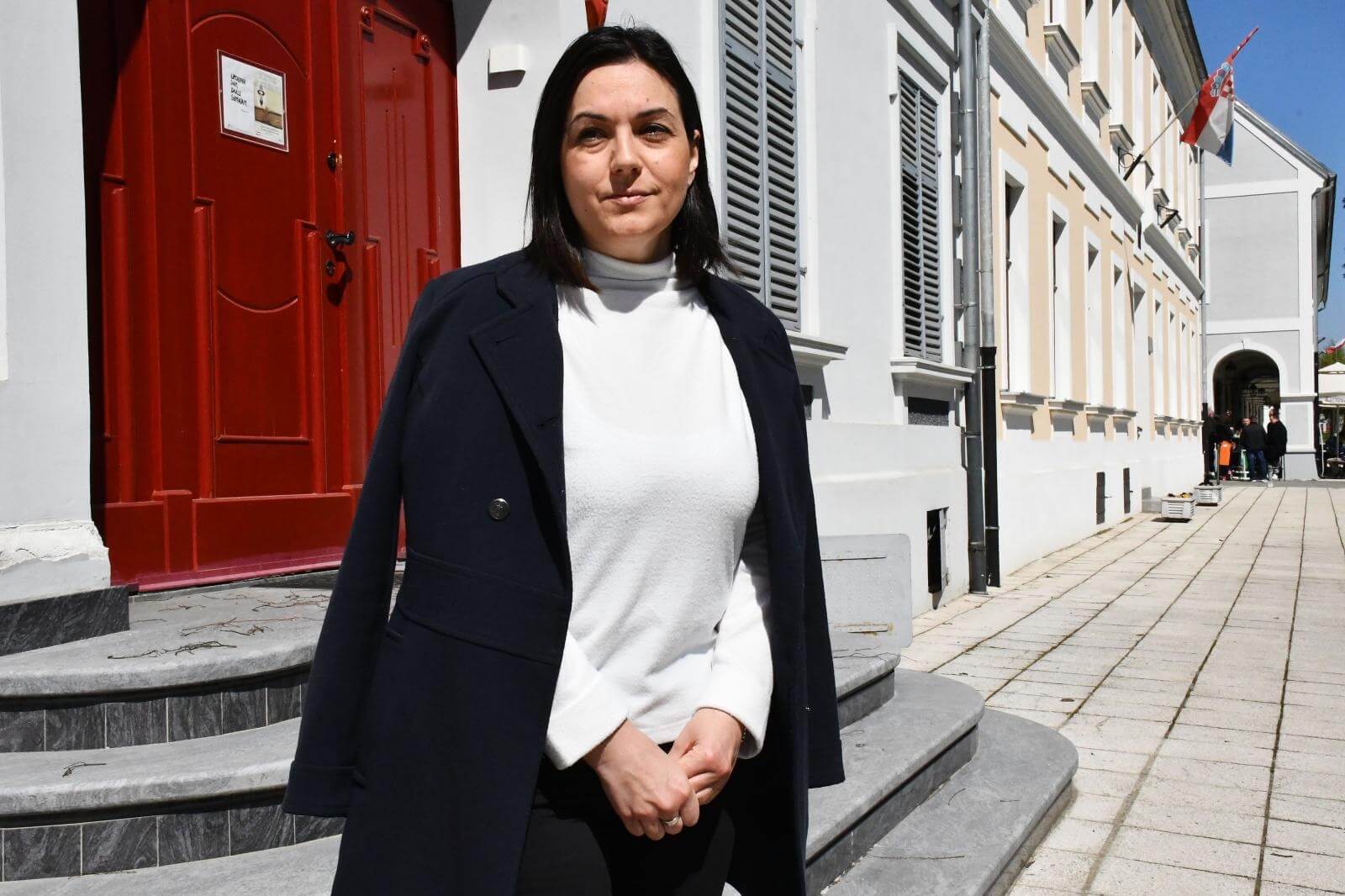
© Ivica Galovic / PIXSELL
Following the tragic death of a 2-year-old girl who was heavily beaten by her mother and neglected by her parents resulted in Marija Jugović taking the position as the new headmaster of Social Welfare Centre Nova Gradiška on Monday. Jugović replaced the former headmaster Branko Medunić, following the controversial decision of returning the girl from her foster family back to her biological parents, who previously neglected and abused her, which ended fatally.
As Večernji List reported, Medunić is still employed in the Centre, and Jugović said on Monday that the investigation by the ministry would show if there were any misconducts in handling the case.
„Medunić is a social worker, and he is currently doing the job according to his occupation“, said Jugović.
Pending the results, Jugović announced lay-offs in the Nova Gradiška Centre. The investigation was expected to be complete by Wednesday.
„It's determined that there were mistakes in the procedure, which was the mistake of the headmaster. We are still waiting for professional findings from Croatian Social Workers chamber and Croatian Psychology Chamber“, said Josip Aladrović, Minister of family and social policies, on Wednesday as a guest On National Croatian Radiotelevision (HRT).
He added that restrictions in the Centre were done immediately based on those findings, and other results are expected to be complete by the end of the week.
Highlights of the week: April snow in Zagreb brought shock and traffic
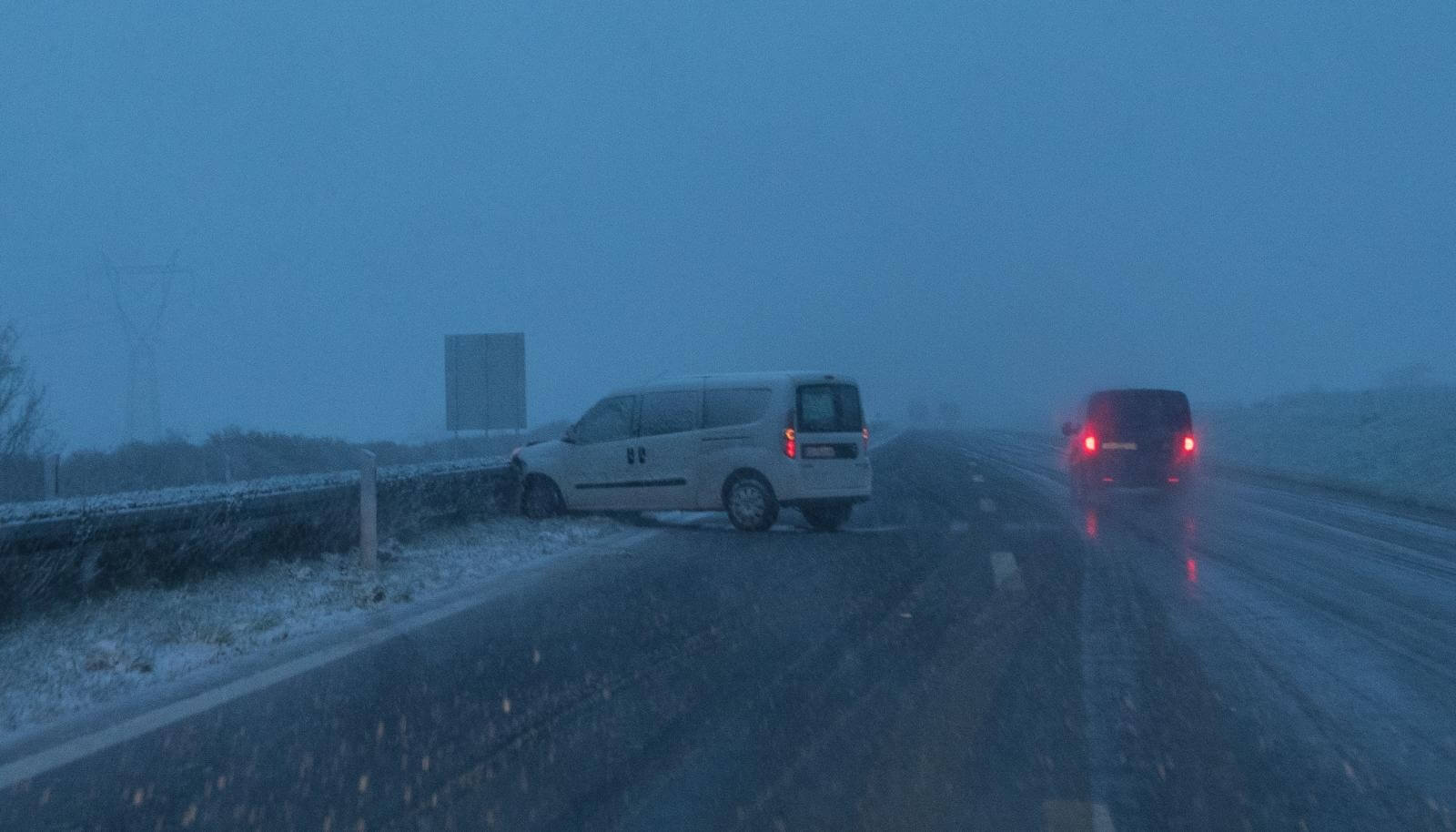
© Bruno Fantulin / PIXSELL
The heavy snow, which was announced but still surprised the citizens of Zagreb thanks to its intensity, caused chaos on Zagreb streets on Tuesday. Traffic was jammed and several accidents occurred. Still, the snow quickly melted away and meteorologists announced warmer weather by the end of the week.
Citizens of Zagreb were in disbelief of such heavy snowfall in early April, a day after it was a little under 20 degrees Celsius.
Highlights of the week: Ivica Puljak and Bojan Ivošević competing together in Split local elections
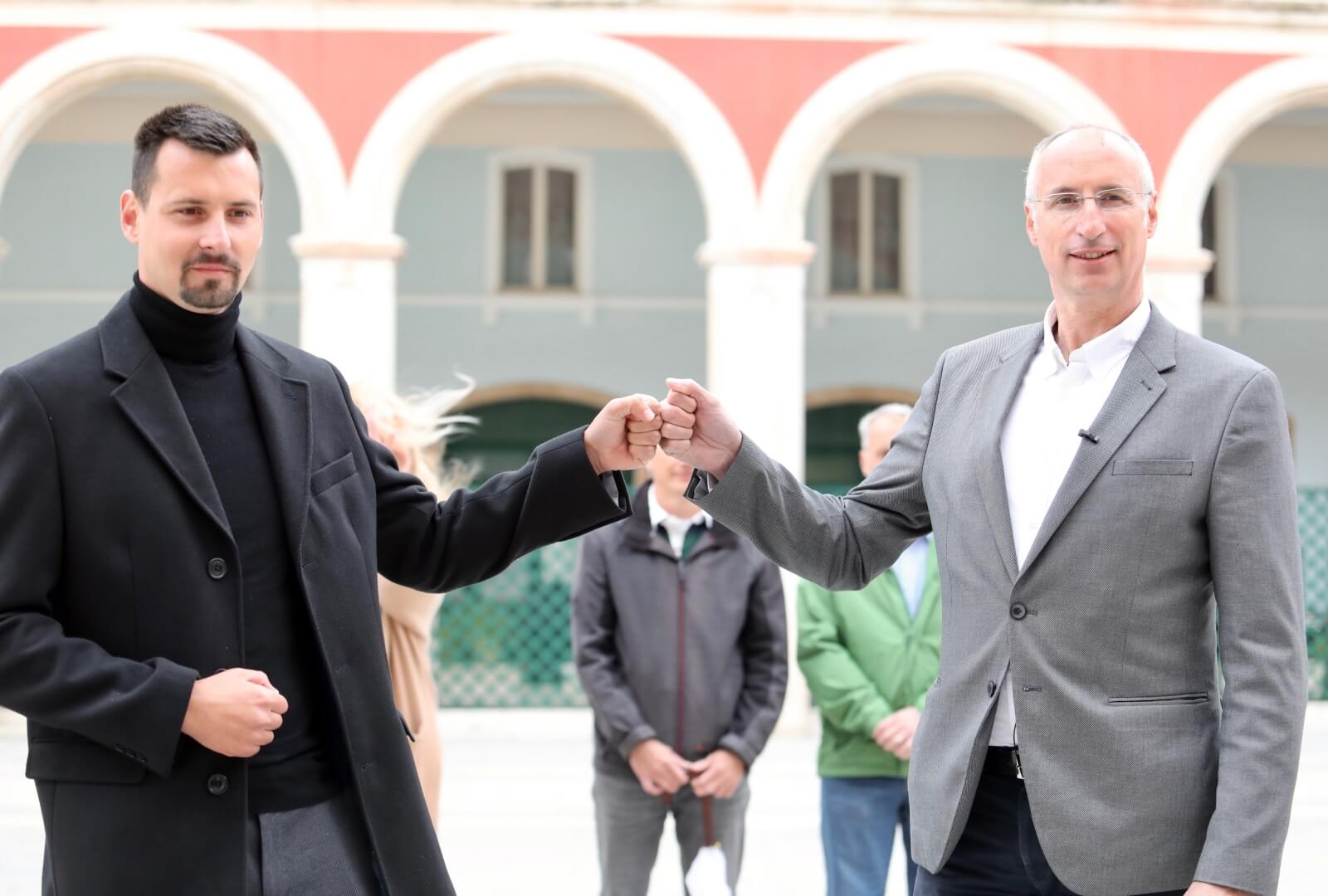
© Ivo Cagalj / PIXSELL
Mayoral candidate of Centre Party Ivica will compete in the upcoming local elections for Split Mayor with the independent candidate Bojan Ivošević who aims to be his vice-mayor. As Večernji List reported on Tuesday, the pair said this decision was easy for them as neither one had to betray their beliefs when agreeing to this collaboration.
„In this election, the civil, progressive Split we represent is waking up like never before. We united our teams, Split has a chance it didn't have in decades, and if we don't use it, we won't get another opportunity for four years, maybe even longer. We have to take this chance“, said Ivica Poljak.
Bojan Ivošević is confident they will win elections and „return freedom to the citizens of Split and end trading authority in Split“.
Highlights of the week: Construction of connecting Kaštel fort with underground tunnels ongoing in Pula
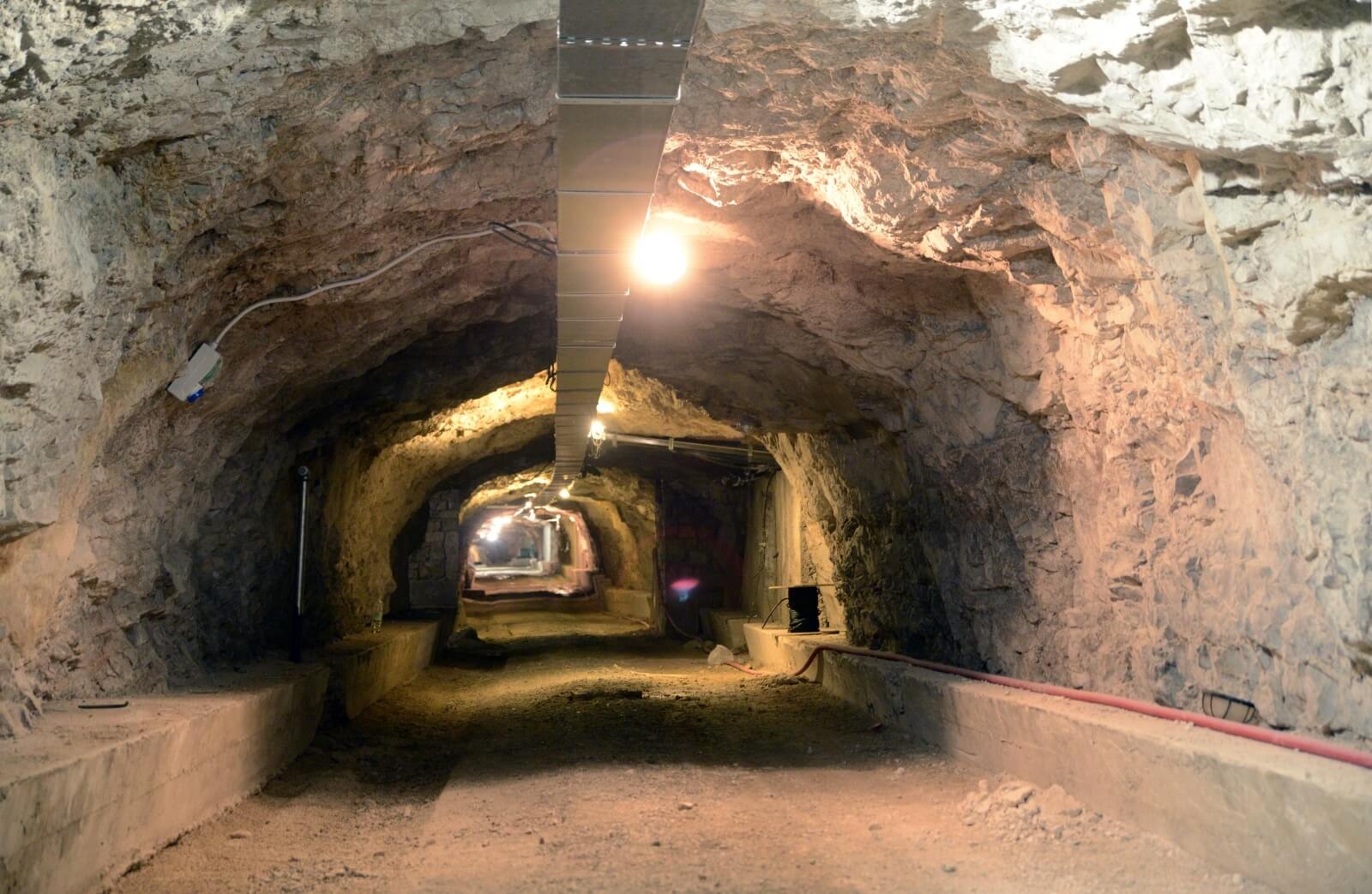
© Sasa Miljevic / PIXSELL
One of the most interesting tourist projects this year is taking place in Pula. Fort Kaštel is being connected with a network of underground tunnels that date back from the Austro-Hungarian times when Pula was the main military port. After the project was announced as early as 2019, the shaft where there will be a tourist elevator that will connect the fort with tunnels was finally been pierced last Friday.
Highlights of the week: Dinamo defeated by Villareal
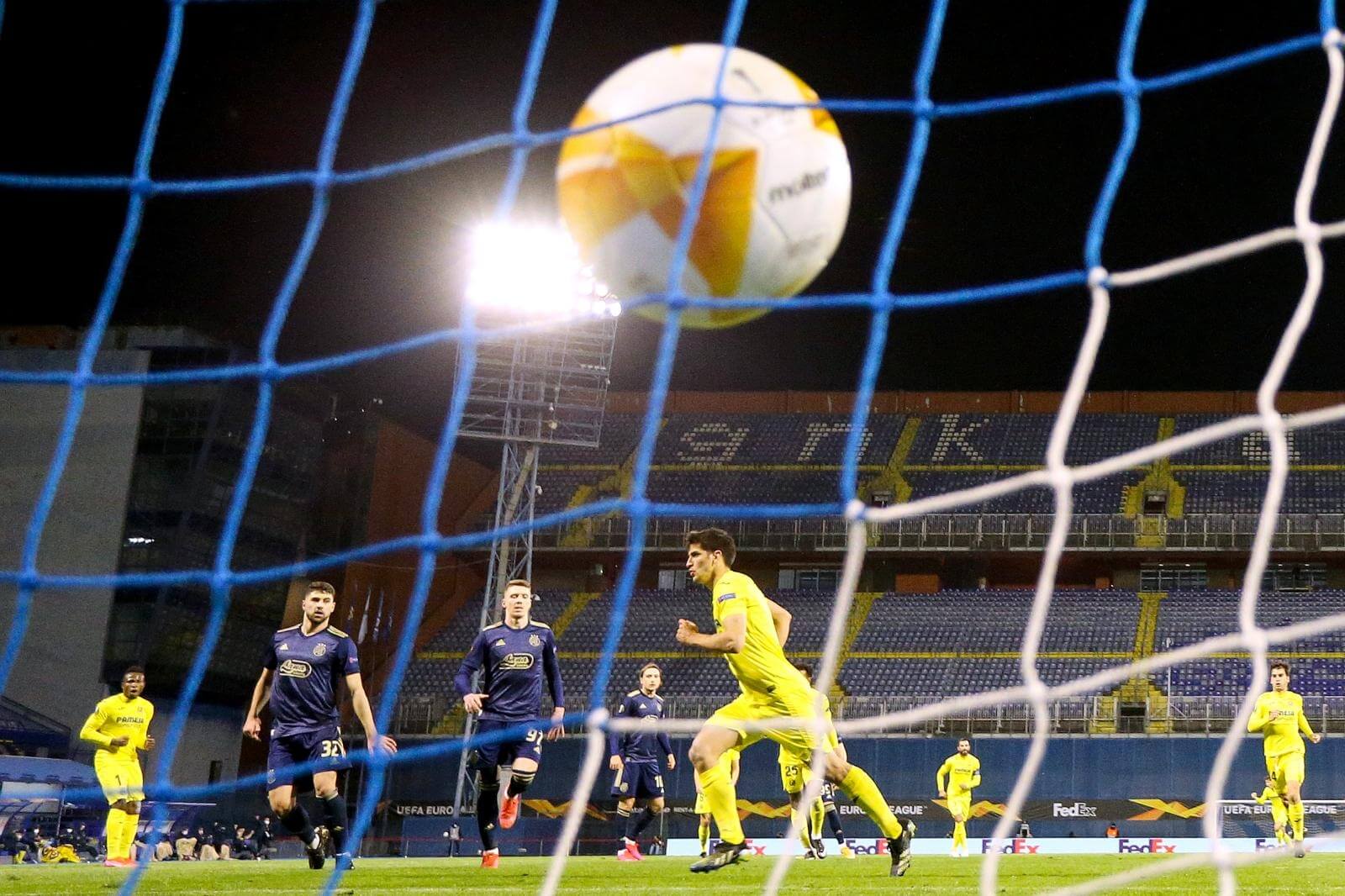
© Goran Stanzl / PIXSELL
After the brilliant victory against Tottenham, Dinamo's luck and skill took a blow in the clash with Villareal on Thursday.
Despite Dinamo handling well against the first attempt of Villareal and few risky shots aimed at Zagreb's gate, it all went well until the very end of half-time when Moreno scored for the Spanish club, taking advantage of a penalty Dinamo received for Theophile's handball.
Dinamo didn't manage to level the result or turnover the game but reduced the loss to the lowest possible outcome. Whether Dinamo is able to come on top against Villareal will be known next Thursday when they visit Villareal in Spain.
For more about politics in Croatia, follow TCN's dedicated page.
To read more about sport in Croatia, follow TCN's dedicated page.
To follow all news from Croatia, subscribe to our newsletter.
PM Andrej Plenković: "Decision to Return Child to Biological Family Was Bad"
ZAGREB, 7 April, 2021 - PM Andrej Plenković said on Wednesday, in a comment on the death of a 2.5-year-old girl caused by domestic violence, that the decision to return the child to its biological family was bad and that those who made it should bear the consequences, noting that social care did not require a separate ministry.
"I don't know why the proposal to separate social care from the 'mega-ministry' is being made," Plenković told reporters in the parliament.
He recalled that in 2013, during the term of the Zoran Milanović government, a case similar to the last one happened in Slavonski Brod, and at the time there was a separate ministry of social care.
When they lack arguments, people make banal, nonsensical statements, Plenković said, adding that Labour, Pension System, Family and Social Policy Minister Josip Aladrović was capable of heading the ministry because the ministry had its services, directors, state secretaries and social welfare centres across Croatia.
"In this specific case with a fatal outcome, the assessment and decision to return the little girl to her biological family was a bad one and for that kind of professional mistake responsibility lies with those who make it," he said.
Plenković went on to say that since the case of an incident on Pag Island in 2019, when a father threw his four underage children from the first-storey balcony of his house, a lot had changed in the social care system.
"During the terms of ministers (Nada) Murganić, (Vesna) Bedeković and now Minister Aladrović, we have worked to strengthen the system of social care. We have worked to raise social workers' wages as well as standards of physical and technical security, so now welfare centres have guards," he said.
The government has increased outlays for social care and allowances and it expects the system to function better and to the benefit of children, he said.
Unfortunately, there are problems, there are dysfunctional families, horrible things are done by biological parents but they will all answer for their actions in a legal procedure, Plenković said, adding that he was appalled and extremely saddened by the latest case.
Speaking of illogical provisions in the foster care law, adopted by his government, Plenković said that every legal solution could be improved.
It is important to speed up foster care procedures and that all children who live in environments that are not appropriate and not safe find a safe place to live. We will improve the law. There is always something to improve, he said.
AstraZeneca vaccine
Plenković also talked about a decision the European Medicines Agency is expected to make on the age groups for which the AstraZeneca COVID-19 vaccine is acceptable.
He said he would meet today with Health Minister Vili Beroš and the directors of the Croatian Institute of Public Health and the Croatian agency for medicinal products to discuss the information they had, and that later today Beroš would participate in a video conference of EU health ministers.
"The most important thing is that the member states' ministers of health have a consolidated position, whatever the EMA's recommendation, and that there are no different practices. Different practices undermine the reputation of a vaccine, whatever its quality, which has happened with AstraZeneca from the start, unfortunately."
Plenković said the confusion about that vaccine had resulted in some people refusing it, which was not pleasant either for the company or anyone involved in vaccination.
He also responded to criticism that he had promised that a majority of the Croatian population would be vaccinated by spring yet had now postponed this until July.
He said AstraZeneca had promised to deliver 120 million doses to the EU in the first quarter but delivered 30 million. Croatia was to have received 1.7 million doses by 31 March and vaccinated more than 800,000 people, he added.
Plenković said 600,000 doses had been delivered and that 2.6 million would be by 30 June, adding that the government was working on having other vaccines available in case of more problems with AstraZeneca.
"Had we ordered 100% from each company and paid for 25 million doses, then all questions would have been - whose money are we spending and why are we buying three or four times as many doses as we need?"
He said an unforeseen thing had happened, not with a no-name company but one of the largest pharmaceutical companies in the world.
Central bank governor, fighter jets, former JANAF CEO's arrest
Asked if he had known about central bank governor Boris Vujčić's correspondence with representatives of the Knighthead fund concerning the Agrokor conglomerate, Plenković said the question should be put to Vujčić.
Speaking of the procurement of fighter jets, he said consultations were under way and that a decision would be made in time. All offers are valid and we'll take some more time to decide, he added.
Asked to comment on the new arrest of Dragan Kovačević, former CEO of the JANAF oil pipeline operator, Plenković said everything about it should be said by the USKOK anti-corruption office and the State Attorney's Office.
For more about politics in Croatia, follow TCN's dedicated page.
Action Plan to Restructure, Improve Social Welfare System Announced
ZAGREB, 6 April, 2021 - The founder of the #Spasime (Save me) initiative, Jelena Veljača, said on Tuesday it was agreed at today's meeting with Social Policy Minister Josip Aladrović that an action plan to restructure and improve the system should be urgently adopted.
Speaking to the press after the meeting, Veljača said she was sorry if she had contributed to a campaign against social workers with a recent statement which she said "was prompted by the outcome of the monstrous event in Nova Gradiška."
In a recent Facebook post, she pushed for sacking and revoking the licences of the whole "expert" team from the social welfare centre in Nova Gradiška and establishing if they were criminally accountable for the death of a girl of two and a half who had been severely beaten by her mother.
Veljača said today "we must not ignore problems" and that this case "is not an incident," adding that the initiative had wanted to warn about problematic cases that did not end in death.
She said she was pleased that the initiative had been in dialogue with Minister Aladrović since November and that he had shown the political will and personal desire to improve the social welfare system.
She said child rights must come first, before parental rights. "We agreed that the ministry should draft an action plan to improve the system."
Veljača said decisions must be made within the system and that she hoped someone would be held to account for this "absolutely unnecessary death and that no one will hide behind the system."
#Spasime representatives said it was agreed with Justice Ministry officials that a register of domestic abuse cases should be made that would give access to everyone dealing with the problem - social services, courts and prosecutors.
Last week Aladrović's ministry instructed directors of social welfare centres that in cases of domestic violence, professionals must apply the Istanbul Convention and violence protocols. This means that in evaluating parental competence, a parent's history of violence is taken as an aggravating circumstance and that a child's interest must come before that of parents.
At today's meeting it was also agreed that oversight of social services' actions should be conducted regularly.
Vedrana Šimundža-Nikolić of the Justice Ministry said it was agreed to define as a separate crime when an official, through inaction or wrong action, failed to protect a child's rights and this had consequences
"The law already envisages punishing someone who does not execute a decision to protect a child's well-being and rights, but in (the Nova Gradiška case) we don't have failure to execute a decision, but to make it. That would be prosecuted as a separate crime."
The head of the Family and Social Policy Administration, Marija Barilić, said the Family and Social Policy Ministry had begun making analyses of children in foster care and care homes "so that we can see their situation, if they should stay in the system."
Minister Aladrović said the ministry was very determined to change the system and that he was confident the system could be improved through the joint efforts of everyone in society.
For more about politics in Croatia, follow TCN's dedicated page.


